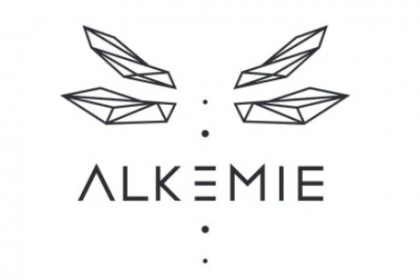The first syllable of the marks in dispute was completely identical, and the word elements of the EU marks were of the same length. So how did the ECJ assess the likelihood of confusion between the word and figurative mark Alkemie and the earlier word mark Alkmene?

Alkemie vs. Alkmene – is there a likelihood of confusion between them? This was at least the opinion of Mann & Schröder GmbH (Germany), trademark owner of the earlier Union word mark Alkmene. Accordingly, Mann & Schröder GmbH filed an opposition against the registration of the EU trademark Alkemie, a word and figurative mark of Alkemie Group sp. z o.o. (Poland).
Both trademarks were registered for very similar goods in the field of cosmetics, lotions and skin creams and also oral hygiene.
The Opposition Division and also the Board of Appeal of the EUIPO, which was subsequently appealed, upheld the opposition in large parts. The Alkemie Group appealed against this decision before theCourt of Justice of the European Union (CJEU).
Alkemie vs. Alkmene- Likelihood of confusion?
The case is interesting in that many trademark disputes over similarities are often decided by the first syllable or even the initial letter in court. Also different lengths, i.e. different number of letters in similar trademarks can make the difference to the likelihood of confusion.
In the present case, however, the first syllable is completely identical, and the following letters also show similarity. Both words consist of seven letters. So how did the CJEU assess the likelihood of confusion?
The applicant argued that the distinctive and dominant element of the disputed marks is not the sequence of letters “alk”. “Alk” is also used in various other marks and therefore has a weak distinctive character.
CJEU rejects the complaint
However, the CJEU rejected this objection. First, the plaintiff had not been able to make clear in any way that the sequence of letters “alk” is to be considered separately and should be regarded as less distinctive; for this, it would have been necessary to prove, for example, that “alk” has a specific meaning for consumers. This is because a consumer tends to break down a word mark into components that have a specific meaning for him or that are similar to words he knows. However, this was not proven for “Alk”.
Above all, the mere fact that several other trademarks contain a certain sequence of letters is not sufficient to establish that this sequence of letters has acquired a weak distinctive character, the CJEU ruled, referring to the established case law on this aspect (see T-135/04, GfK v OHIM – BUS [Online Bus] EU: T:2005:419 of 2004, Zero Industry v OHIM – zero Germany (zerorh+), T-400/06, EU:T:2009:331 of 2009).
In the present case, consumers would not look at a specific sequence of letters, i.e., they would not look at the letter sequences “emie” and “meine”. Rather, the conflicting marks must each be compared as a whole, which is how consumers perceive them, the court explained.
Word and figurative mark: word element often dominant
The CJEU pointed out that the word elements are in principle more distinctive than the figurative elements in a mark consisting of word and figurative elements. This is because consumers are more likely to identify the goods in question by mentioning the name of the mark than by describing the figurative element of the mark. At the same time, the court emphasized that it does not follow from this, however, that the word elements of a mark must always be considered more distinctive than the figurative elements. Indeed, in the case of a complex mark, the figurative element may occupy an equivalent place to the word element.
In the case of Alkemie vs. Alkmene, the word element Alkemie was in any case to be considered dominant in the contested word and figurative mark, the CJEU ruled. Despite the slight stylization of some letters, this word is perceived as a whole.
And as a whole, the similarity of the two marks together with the similar or even identical goods lead to a likelihood of confusion, the CJEU ruled, thus confirming the decision of the Board of Appeal.
Would you also like to protect or defend your trademark?
Our attorneys have many years of expertise in trademark law as well as in the entire field of intellectual property and are authorized to represent you before any court – in Germany and also internationally.
Please contact us if you are interested.

Sources:
CJEU Judgement Alkemie vs. Alkmene, EU:T:2020:616
Image:
stux | pixabay.com | CCO License







Leave a Reply